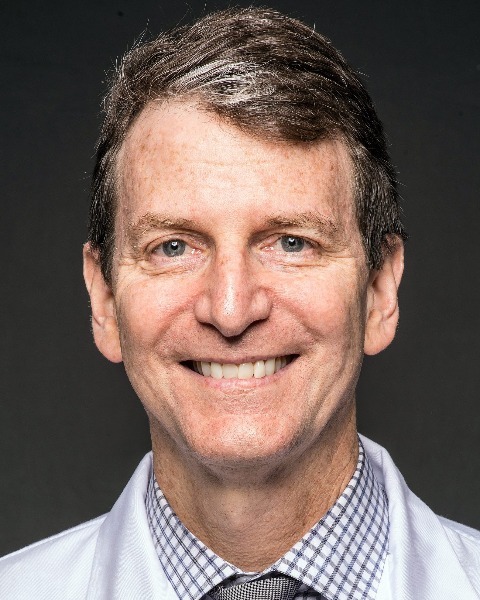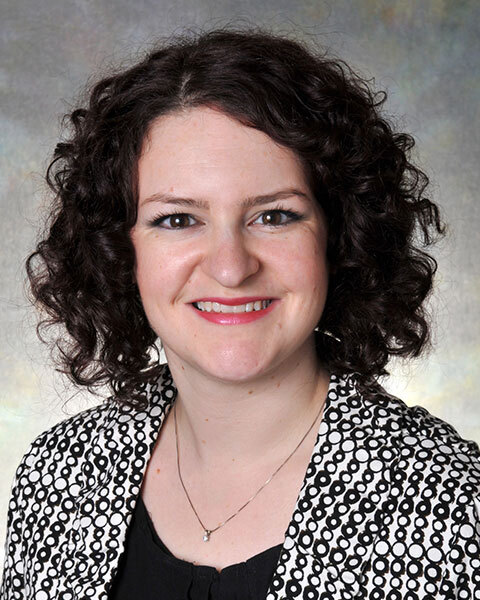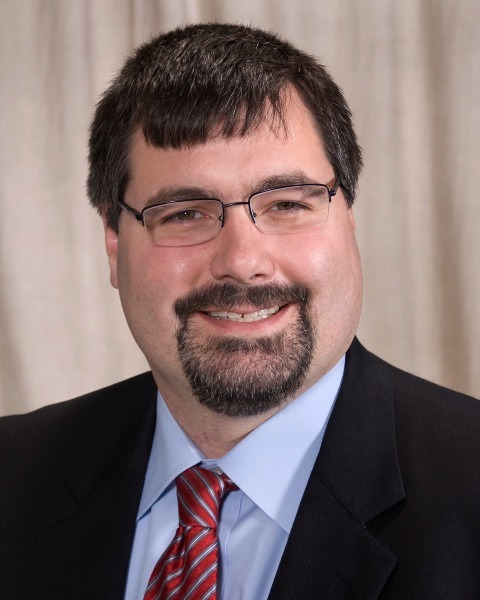
Excited Delirium: The Controversy in the Care of the Acutely Agitated Patient
-
Register
- Non-Member - $39
- Regular Member - $29
- Retired - $29
- Early Career Physician - $29
- Resident - $19
- Student - $19
- Associate - $19
- ASAM Staff - Free!
- International Member - $29
- Emeritus Member - $29
- Provisional Member - $29
- Fellow Member - $29
- Honorary Member - $29
- CRT Member - $29

Excited Delirium: The Controversy in the Care of the Acutely Agitated Patient
Recorded: Thursday, April 22, 2021 - Saturday, April 24, 2021
On-Demand Session
Overview
This 1-hour on-demand session from ASAM Virtual 2021 addresses the risk to both providers and patients and the need for non-verbal restraint in excited delirium syndrome, the unique challenges it poses to the medical team, and the techniques and medication in treatment.
Excited delirium is a concept fraught with controversy. The syndrome is characterized by the presence of extreme psychomotor agitation, unpredictable, and often violent behavior that poses a risk for both providers and patients and the need for non-verbal restraint. These patients are at high risk of harming themselves, both physically (e.g., injury) and physiologically (e.g., hyperthermia) unless they are managed appropriately, quickly, and aggressively. Additionally, these patients pose a unique challenge to the medical team attempting to care for them. Multiple techniques and medications are discussed in the medical literature, though, given the varying risk profile of the various approaches, significant controversy exists. Recent media reports regarding the management of patients with excited delirium demonstrate the complex societal, mental, and pathophysiological dynamics of this syndrome.
The target audience for this intermediate level session includes physicians, nurse practitioners, physician assistants, other clinicians, researchers, residents, fellows, students, and counselors.
This session addresses the following ACGME Competencies: Patient Care, Medical Knowledge, Systems Based Practice.
Learning Objectives
Upon completion, learners will be able to:
- Describe the broad differential for causes of “excited delirium”
- Outline the various management strategies using both pharmacological and non-pharmacological methods and methods of drug testing available to these cases
- Understand how issues of racial disparity impact management of “excited/agitated delirium”
Fees
| Rate Description | Rate |
| ASAM Member | $29 |
| Non-Member | $39 |
| Associate Member | $19 |
| Resident Member* | $19 |
| Student Member* | $19 |
*Residents, Fellows-in-training, Interns, and Students must join ASAM to receive a discounted registration rate. Click here to become an ASAM member. National and Chapter membership dues apply. There is no charge for Students to become a Member, but verification of student status is required.
Membership Question? Call ASAM at 1.301.656.3920, email us, or view the ASAM website for more information.
Refunds & Cancellations
All ASAM e-Learning Center refund requests must be made in writing to education@asam.org within 90 days of purchase. Those requesting refunds for courses that are in progress will receive partial refunds or e-Learning Center credit. Automatic full refunds will be made for any course with a live-course component that has been cancelled.
Registration Deadline: 04/30/2024
Course Instructions
- Click the "Contents" tab and select "View On-Demand Recording". After viewing the entire video, return to the Contents tab.
- Click "Complete Post Test" to answer quiz questions. You will have 10 attempts and must get at least 2 out of 3 questions correct. After completing the quiz, return to the Contents tab.
- Click "Complete Evaluation" to answer evaluation questions. Scroll down on all questions, there are answers that expand past the size of the window.
- Click the button “Claim Credits” in the box titled “Claim Credits & Certificate." Choose the type of credit and click submit. Click the button “View/Print Certificate” to save or print your certificate. If you ever lose your certificate, you can come back to the ASAM e-Learning Center and view it on your transcript (found in the Dashboard).
Need Assistance?
If you have are experiencing any log in issues, cannot access a course, need assistance claiming credit, or have other questions or concerns, please e-mail Education@asam.org for assistance.
For learners who may have difficulty typing, moving a mouse or reading, Essential Accessibility is an application available for use to assist.

Evan S. Schwarz
MD
Evan Schwarz, MD is an Associate Professor of Emergency Medicine and the Medical Toxicology Division Chief at the Washington University School of Medicine. Additionally, he is board certified in Addiction Medicine. He directs the medical toxicology and addiction medicine consultation service as well as their outpatient clinic and organized the Emergency Department buprenorphine treatment program. In addition to his work responsibilities, he is a member of the board of directors for the American College of Medical Toxicology and the Past President President of the Missouri College of Emergency Physicians. He is also a physician consultant for Missouri’s STR and SOR grant and has taught several x-waiver courses.

Lewis S. Nelson
MD
Lewis S. Nelson, MD is Professor and Chair of the Department of Emergency Medicine and Chief of the Division of Medical Toxicology at Rutgers New Jersey Medical School in Newark, NJ. He is a member of the Board of Directors of the American Board of Emergency Medicine and a Past-President of the American College of Medical Toxicology. He remains actively involved with CDC, FDA, DHS, and with several professional medical organizations including ASAM. Dr. Nelson is an editor of the textbook Goldfrank’s Toxicologic Emergencies and on the editorial boards of several journals. In addition to providing direct clinical care to patient in the ED and his efforts at New Jersey Poison Information & Education System, his specific expertise include the consequences of licit and illicit opioids, emerging drugs of abuse, opioid stewardship, and alcohol withdrawal.

JoAn Laes
MD
JoAn Laes, MD is an addiction medicine physician at Hennepin Healthcare in Minneapolis, Minnesota focusing on inpatient addiction medicine and toxicology consultation as well as outpatient treatment of opioid and other substance use disorders. She is a core medical toxicology faculty for the Minnesota Poison Center, Minneapolis, Minnesota, medical director for Missions Inc. Detox facility in Plymouth, Minnesota and 1800 Chicago detox facility in Minneapolis, MN and a nocturnist at Mercy Hospital in Coon Rapids, Minnesota. She is the chair of the medical toxicology workgroup for the American Society of Addiction Medicine and the president for the Minnesota chapter of ASAM. She completed internal medicine residency at Hennepin County Medical Center and medical toxicology fellowship at Regions Hospital in St. Paul, Minnesota and is board certified in Internal Medicine, Medical Toxicology, and Addiction Medicine.

Timothy J. Wiegand
MD, FACMT, FAACT, DFASAM
Timothy J. Wiegand, MD, FACMT, FAACT, DFASAM, specializes in Medical Toxicology and Addiction Medicine. He is an Associate Professor of Emergency Medicine and Director of the Toxicology/Addiction Consult Service at Strong Memorial Hospital and the University of Rochester Medical Center. He is Program Director for the URMC Addiction Medicine Fellowship Program, based out of the Department of Emergency Medicine and core faculty for their Emergency Medicine residency. Dr. Wiegand is also Medical Director for Huther Doyle, an addiction services provider in Rochester, New York.
In addition to ED, hospital, and clinic work treating intoxication, withdrawal, and assisting with pain management for patients maintained on Medications for Opioid Use Disorder Dr. Wiegand is involved with education and research in toxicology and addiction and he lectures locally, nationally, and internationally. Dr. Wiegand serves on the ASAM Board of Directors as Vice President; he is President of NYSAM and he is completing a second term on the Board of the American College of Medical Toxicology.
Dr. Wiegand serves in a volunteer capacity for many local, state, and national committees. He has been awarded the Charlotte Hegedus Award from the National Council on Alcoholism and Drug Dependence for professionals who have consistently demonstrated high level of cooperative work with individuals or groups with substance use disorders for at least five years. Dr. Wiegand is the 2022 awardee of the American Society of Addiction Medicine Annual Award. This award is given to an individual for outstanding contributions to the growth and vitality of ASAM, for thoughtful leadership in the field, and for a deep understanding of the art and science of Addiction Medicine.” And “for expanding the frontiers of the field of Addiction Medicine and broadening our understanding of the addictive process, through research and innovation.” He was also awarded the 2022 ACMT Service Award.
CME, CE, CEU and Other Credit Types

ACCME Accreditation Statement
The American Society of Addiction Medicine is accredited by the Accreditation Council for Continuing Medical Education (ACCME) to provide continuing medical education for physicians.
AMA Credit Designation Statement
The American Society of Addiction Medicine designates this enduring material for a maximum of 1 AMA PRA Category 1 Credits™. Physicians should claim only the credit commensurate with the extent of their participation in the activity.
American Academy of Physician Assistants
This activity has been reviewed by the AAPA Review Panel and is compliant with AAPA CME Criteria. This activity is designated for 1 AAPA Category 1 CME credits. Approval is valid from 5/26/2021 to 5/26/2022. PAs should only claim credit commensurate with the extent of their participation. AAPA reference number: CME-202755.
NAADAC, the Association for Addiction Professionals
This activity has been approved by the American Society of Addiction Medicine, as a NAADAC Approved Education Provider, for educational credits. NAADAC Provider #295, ASAM is responsible for all aspects of the programming.
California Association for Drug/Alcohol Educators (CAADE)
This educational program is approved by CAADE: #CP40 999 1222.
California Association of DUI Treatment Centers (CADTP)
This educational program is approved by CADTP: #205.
California Consortium of Addiction Programs and Professionals (CCAPP)
This educational program is approved by CCAPP: #OS-20-330-1222.
Continuing Education Credits (CEUs)
Non-physician participants will receive a certificate of attendance upon completion of the activity and an online evaluation confirming their participation. Participants should submit his/her certificate of attendance to their professional organization/institute.
Maintenance of Certification (MOC) or Continuing Certification Programs (CCP)
American Board of Medical Specialties (ABMS)
Through the American Board of Medical Specialties (“ABMS”) ongoing commitment to increase access to practice relevant Continuing Certification Activities through the ABMS Continuing Certification Directory, The ASAM Virtual.2021 has met the requirements as a MOC Part II CME Activity (apply toward general CME requirement) for the following ABMS Member Boards: Allergy and Immunology, Anesthesiology, Colon and Rectal Surgery, Family Medicine, Medical Genetics and Genomics, Nuclear Medicine, Physical Medicine and Rehabilitation, Plastic Surgery, Preventive Medicine, Psychiatry and Neurology, Radiology, Thoracic Surgery, Urology
American Board of Preventive Medicine (ABPM)
The American Board of Preventive Medicine (ABPM) has approved this activity for a maximum of 1 credit towards ABPM MOC Part II requirements.
American Board of Anesthesiology (ABA)
This activity contributes to the CME component of the American Board of Anesthesiology’s redesigned Maintenance of Certification in Anesthesiology TM (MOCA®) program, known as MOCA 2.0®.
American Board of Pediatrics (ABP)
Successful completion of this CME activity, which includes participation in the activity, with individual assessments of the participant and feedback to the participant, enables the participant to earn a maximum of 1 MOC point in the American Board of Pediatrics’ (ABP) Maintenance of Certification (MOC) program. It is the CME activity provider’s responsibility to submit participant completion information to ACCME for the purpose of granting ABP MOC credit.
American Board of Internal Medicine (ABIM)
Successful completion of this CME activity, which includes participation in the evaluation component, enables the participant to earn up to 1 Medical Knowledge MOC point in the American Board of Internal Medicine’s (ABIM) Maintenance of Certification (MOC) program. Participants will earn MOC points equivalent to the amount of CME credits claimed for the activity. It is the CME activity provider’s responsibility to submit participant completion information to ACCME for the purpose of granting ABIM MOC credits.
American Board of Surgery (ABS)
Successful completion of this CME activity, which includes participation in the evaluation component, enables the learner to earn credit toward the CME and/or Self-Assessment requirements of the American Board of Surgery’s Continuous Certification program. It is the CME activity provider's responsibility to submit learner completion information to ACCME for the purpose of granting ABS credit.
American Board of Psychiatry and Neurology (ABPN)
Successful completion of this CME activity can be used to satisfy the American Board of Psychiatry and Neurology’s (ABPN) CME requirement for Maintenance of Certification program.
American Board of Addiction Medicine (ABAM)
Successful completion of this activity can be used to satisfy the American Board of Addiction Medicine (ABAM) Tmoc credit requirements.
Royal College of Physicians and Surgeons of Canada (RCPSC)
Royal College Fellows can use participation in Accredited Continuing Medical Education to earn Section 3 Credits.
CME Committee, Program Planning Committee, and Faculty Disclosure Information
In accordance with disclosure policies of ASAM and the ACCME, the effort is made to ensure balance, independence, objectivity, and scientific rigor in all CME activities. These policies include mitigating all possible relevant financial relationships with ineligible companies for the Planning Committees, CME Committee, MEC, and Faculty. All activity Planning Committee members and Faculty have disclosed relevant financial relationship information. The ASAM CME Committee has reviewed these disclosures and determined that the relationships are not inappropriate in the context of their respective presentations and are not inconsistent with the educational goals and integrity of the activity.

